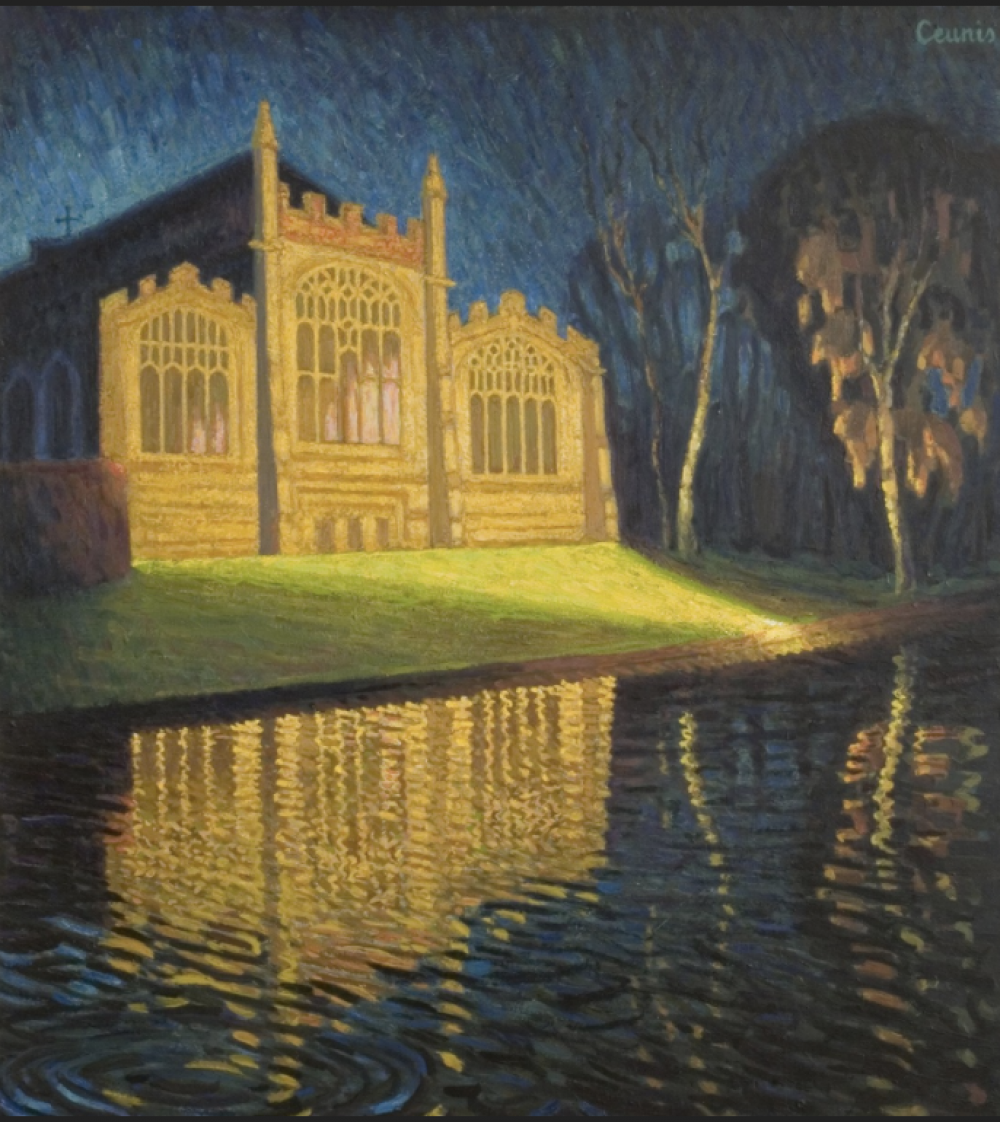I’ve written before, in a number of posts on this site, about Johan Daisne (1912 – 1978), the Belgian magic realist novelist and poet who maintained contact with Gerard Ceunis throughout his life and who wrote his obituary in the newspaper Vooruit. Daisne’s real name was Herman Thiery and he was the son of the progressive educators Leo Michel Thiery and Augusta de Taeye, who knew Gerard and Alice Ceunis through their membership of the radical Reiner Leven and Flinken groups in Ghent.
The story of the summer vacation that the young Daisne spent with Gerard and Alice at their home in Hitchin, and his seemingly unrequited love for their daughter Vanna, is recounted in his novel Lago Maggiore and his short story collection Zes domino’s voor vrouwen, as well as in the Basque author Kirmen Uribe’s docu-fiction Mussche, which tells the story of Daisne’s rivalry with his friend the poet Robert Mussche for Vanna’s affection.
I discovered recently that Gerard Ceunis painted a portrait of Johan Daisne, which apparently featured on the cover of the latter’s 1964 novel Als Kantwerk aan de Kim. My efforts to trace a copy of this portrait were unsuccessful, until last week, when I found it included in the set of Ceunis-related items sent to me by Elsie De Cuyper.


Cover of Johan Daisne’s novel ‘Als Kantwerk aan de Kim’ (Brussels: Manteau, 1964) with Gerard Ceunis’ portrait of the author
The material sent by Elsie also included a copy of a poem by Johan Daisne which I hadn’t seen before. Entitled simply ‘Vanna’, it’s an extremely poignant expression of the writer’s frustrated love for Gerard Ceunis’ daughter. I’m sharing the text of the poem below, followed by my attempt at a loose and rather unpoetic English translation. Sadly, I’ve not been able to reproduce the regular rhythm and rhyming scheme of the Flemish/Dutch original, which contributes to the intensity of the emotion.

We were eighteen, long ago,
and you so tall and blonde and slim.
Sometimes you still write back with love
when I’ve sent you some nice thing.
.
But neither of us ever dared to say…
Shall I do it here and now?
Know this, by my eyes I swear:
I always loved you, to the end.
.
You, the upper-class English girl,
I, the poor boy on holiday from Ghent,
but you had Flemish forebears as well –
I loved you in the blood we shared.
.
Just like two friends, two pals, we were,
though sometimes, smoking, we’d hold hands,
noisy at the movies, silent in churches,
or romping through the summer land.
.
I let you read you my early verses
and you wrote too, in the end.
It must be a kind of holy fear
which holds us back from happiness.
.
Then in the autumn I had to leave,
you had a fever, perspiring in bed.
I still feel your hand, see your breast rise –
and burning like a torch, I fled.
.
I searched by our rainy River Leie
for a four-leaf clover, sent it by mail.
If you should write now, then I would cry
and kiss you endlessly, my life!
